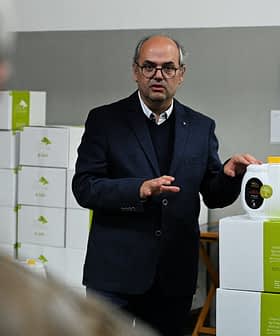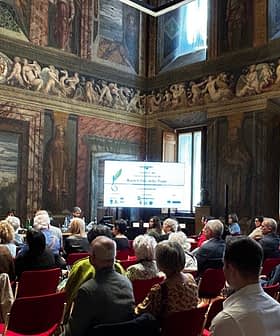New Zealand Producers Enjoy Strong Showing at World Competition
Producers from New Zealand celebrated their success at the NYIOOC World Competition, earning their second-highest tally of awards.
 Ross Vintiner
Ross Vintiner Part of our continuing special coverage of the 2022 NYIOOC World Olive Oil Competition.
For the second year running, New Zealand’s extra virgin olive oil producers earned six awards at the NYIOOC World Olive Oil Competition.
Despite birds, the threat of frost and the lack of availability of commercial harvesters complicating producers’ 2021 harvest, they celebrated their third-highest success rate at the NYIOOC after producing 270,000 liters of olive oil.
I’m proud to see our producers punching above their weight by creating high-quality products that compete on the world stage.
“I’m so pleased to see all the winners recognized for their hard work, focus on sustainable production, and great understanding of growing exceptional olives in New Zealand conditions,” Minister of Agriculture Damien O’Connor told Olive Oil Times. “New Zealand’s olive oil industry is small and enthusiastic.”
“I’m proud to see our producers punching above their weight by creating high-quality products that compete on the world stage,” he added. “All the winners should be very proud of this achievement, and I am excited to see this vibrant industry continue to develop and innovate.”
See Also:Best Olive Oils From New ZealandNew Zealand’s biggest winner, Loopline Olives, located in the Wairarapa region on the North Island, took home two Gold Awards, extending their record of success in the competition for the fourth year in a row.
“I am delighted that Loopline Olives Picual and Picholine extra virgin olive oils have once again been recognized as one of the best in the world,” owner Stephen Davies Howard told Olive Oil Times.
“It is very special to have your hard work recognized in such a prestigious competition,” he added.
Davies Howard said winning these awards “helps in our quest to educate more palates and lets people experience what real-quality extra virgin olive oil tastes like.”
He added that the Wairarapa region’s Mediterranean climate lends his oils their unique character, and Loopline’s oils are pressed on the same day the fruit is harvested and are bottled to order. “Whether you order 250 milliliters or 1,000 liters, the quality is the same,” Davies Howard said.
He added Loopline had a high yield last year, but the intensity of their oil and the polyphenol count was down on previous years.
“2020 was a drought year, and it was as though the trees were compensating for a low yield the previous year and the very intense oils produced,” Davies Howard said. “We have just commenced the 2022 harvest, and after a perfect summer, things are looking good for the 2023 NYIOOC.”
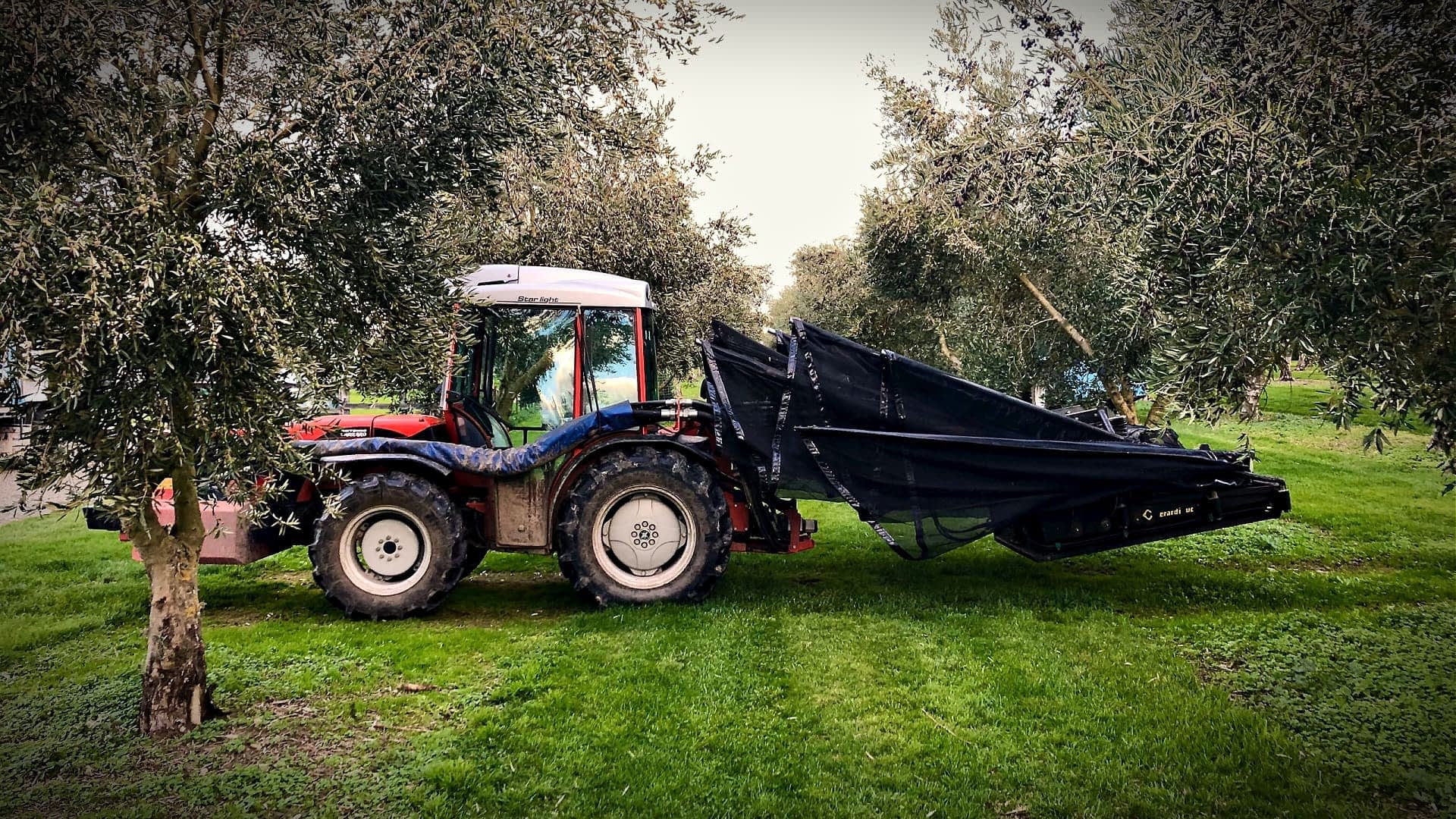
Photo: Loopline Olives
Another producer from the Wairarapa region, Blue Earth Intense, walked away with a Gold for their medium-intensity blended extra virgin olive oil.
Margaret Hanson, who co-owns Blue Earth Olive Oil near Martinborough with her husband, Martin, said they were “delighted” to receive the award.
“It is great to have our own judgment, and the judgment of Olive New Zealand competition panelists affirmed,” she said. “It is also great to see how New Zealand oils stack up internationally.”
Hanson told Olive Oil Times that birds were a challenge during their previous harvest.
“They like our fruit as much as we do,” she said. “So it is a balancing act to get the fruit to the level of ripeness we want before the birds eat too much of it.”
She added that winning the award firmly establishes Blue Earth’s olive oil as a quality brand at an international standard.
“The size of our olive grove – about 1,100 trees – means that we can be meticulous as to how we care for it, and our local press is fantastic about processing it very quickly and efficiently,” Hanson said. “ Much was processed within four hours of coming off the trees.”
Another winner from Martinborough, the Vintiner’s Grove, earned a Silver Award for its medium-intensity Koroneiki extra virgin olive oil.
Co-owner Ross Vintiner, who produces the award-winning oil under the Dali brand, said he was honored to receive the award “especially for the most competitive competition cultivar, Koroneiki.”
Vintiner said Dali Estate, where the olives for the award-winning oil are grown, had their largest-ever harvest last year.
“Using hand-held harvesters, it took over a month to complete,” he said. “The weather was benign, and the oil had a shine and bite from the wealth of sunshine pre-harvest.”
“For our brand, this is a peak global award, adding to our credentials as a top biodynamic and organic grower,” Vintiner added. “For our workers and press, it’s a shared recognition of a great job. For Aotearoa (New Zealand), the award is one more step in being recognized as a small but significant olive oil producer.”
“Our oil is biodynamically and organically grown,” he continued. “It is early harvest with high phenolic compounds and is full bodied. Dali is a product of our living soil, along with the energy nature provides above the ground.”
Further west, producer Totara Tunnel Olives from Te Horo on the Kāpiti Coast scooped up a Gold Award for its medium-intensity Frantoio.
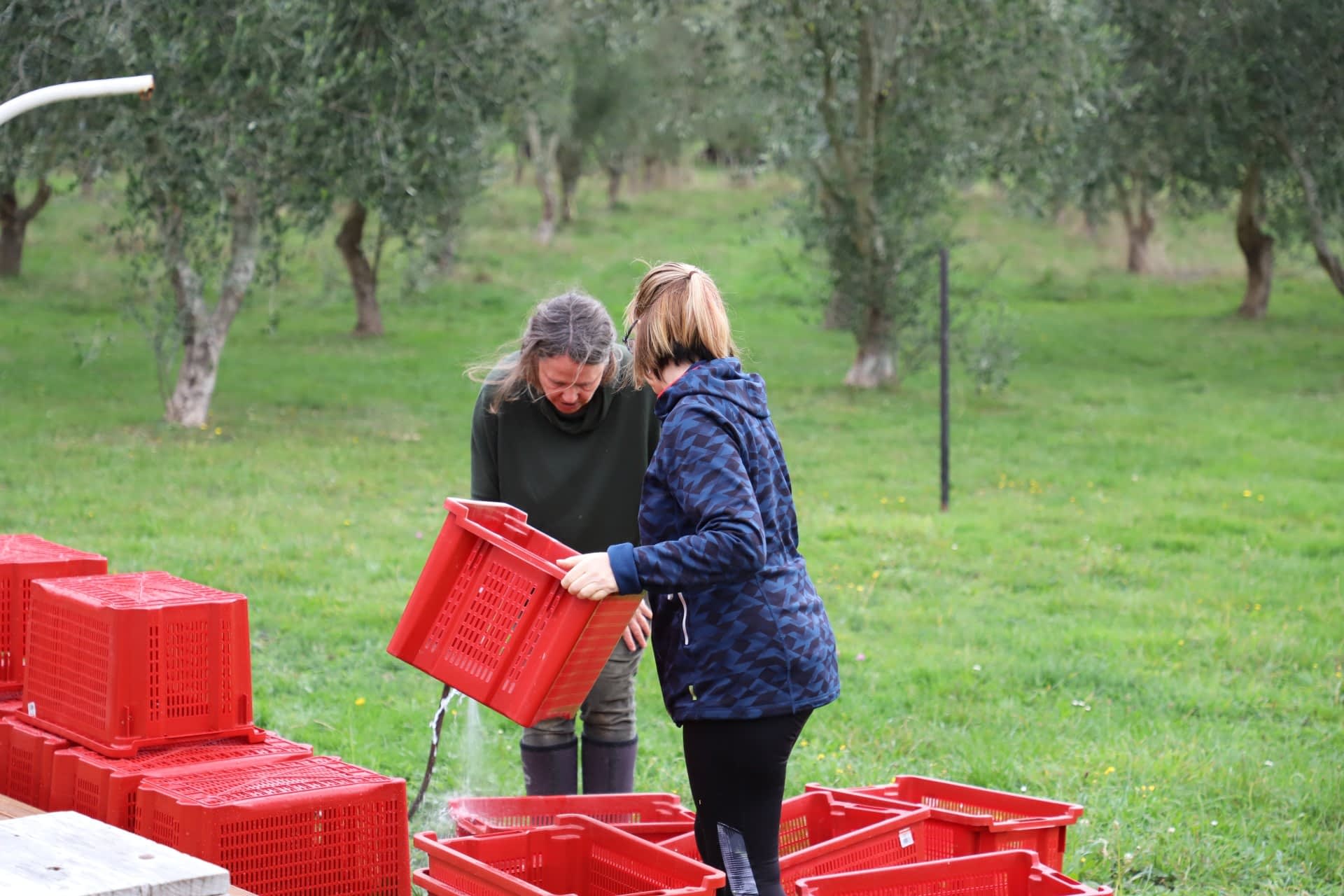
Photo: Totara Tunnel Olives
“We are thrilled to be recognized on the world stage for the quality of our extra virgin olive oil,” co-owner Sally Murrey told Olive Oil Times. “After winning gold for several years in the New Zealand Extra Virgin Olive Oil Awards, it’s humbling to be acknowledged as a producer of truly world-class olive oil. This award cements our previous results.”
“After announcing our award we’ve had a lot of new interest in our oil and we are certain sales will continue strongly until we sell out,” she added.
Murray, who said they managed to harvest at the perfect time and in favorable weather conditions last year, said the “extraordinarily high” organic matter in Totara Tunnel’s soil, coupled with their organic growing principles, sets their oils apart.
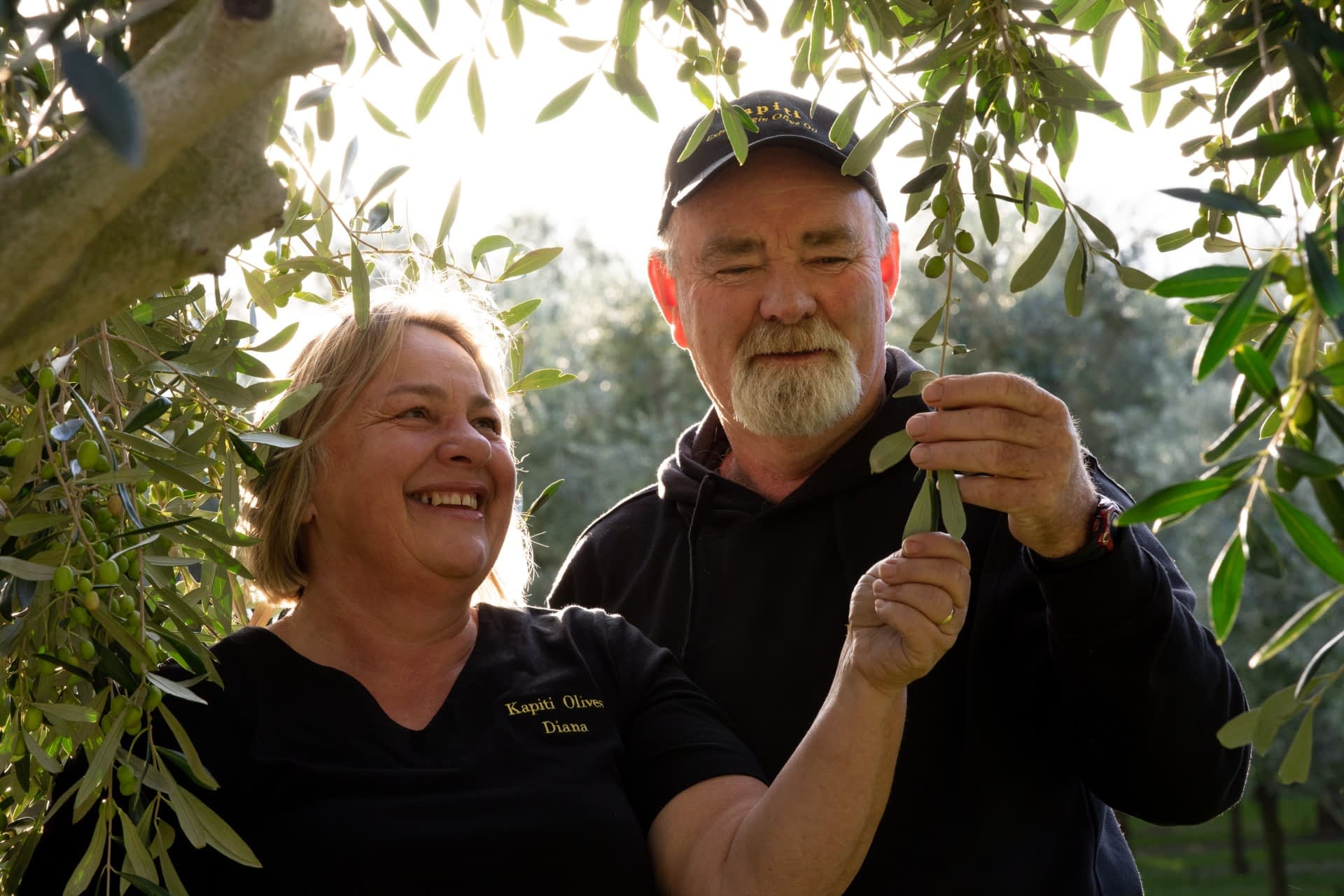
Diana and Grant Crosse
Another producer from the Kāpiti Coast, Kapiti Olives co-owner Diana Crosse, said winning a Silver Award for their delicate Frantoio blend is something of which to be proud.
“Winning a Silver Award in an international show such as the NYIOOC is a wonderful recognition of the quality of Kapiti olive oil,” Crosse, who together with her husband, Grant, bought Kapiti Olives in April, said.
“This award endorses Kapiti olive oil, giving our customers continued confidence that the olive oil they are buying is a premium product,” she said. “Kapiti Olives sits at the top of extra virgin olive oils in New Zealand, shown by its consistent winning of medals and awards.”
Crosse said the 2021 harvest challenges were birds and the possibility of frost. “Harvest challenges are always about the timing to get the desired quality and flavor,” she said.


